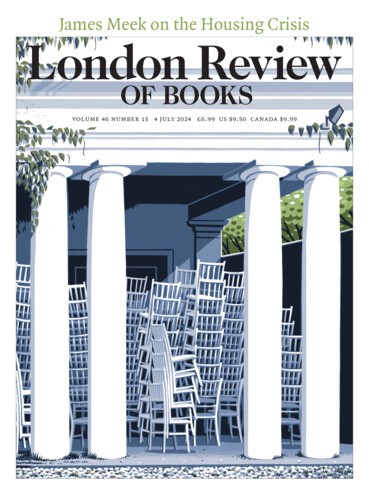Notes towards a Devotio Moderna
I
As if there was a sky where we could
pause a while, like medieval
pilgrims, we are patient to the last
and have no thought of After, or the gods
that might have been: the green amidst the black,
the changelings, or the newly resurrected.
Unlike the saints, we have no use
for angels, all that
bright dust floating down
from worlds we have no reason to pursue;
though sometimes, in the house we learned by heart
as children, everaftered in a fog
of Sabbath and the scent of mother love,
we let some devil in to make its bed:
wind in the ashes, chemtrails in the cinders.
We have the dead, their voices calling home
at nightfall; we have
ghost lights on the stairs;
rats in the attic, baskets of windfall plums,
but no one here has miracles to tell,
or not, that is, beyond the simple fact
of birch woods, or the first snow of the year,
or, somewhere down the river, where the reeds
are thickest, one last
warbler calling out
from everywhere, a warbler in the dusk,
and then an owl, first
one thing, then the next, and everything
so close to unison, we bow our heads
and call it prayer, as if all things were One.
II
Never a fall, these autumns lead us back
to elsewheres we have reason to believe
are ours, though peopled solely with the shapes
of others, neither memories nor ghosts,
but phantoms, nonetheless, as we have been.
Fog on the roads, the harvest gathered in
by lantern light; our work, if it is work,
accomplished.
Deer at the fence lines,
field-mice in the larder
and all the local kingdoms in their
singing, frog
and heron and that clearing where the air
is thick and sweet with rot, not
blackened yet, but tender with the fade
of quince, or damson, strafed into the grass
and bruised to softness by a week of rain,
the wasps grown quick and blind
around that feast, the pigeons
fattened in the hedges, blind with song.
No need to say how gladly we are pledged
to lost and loved.
How still the field is, now the crop is in.
How blue the sky,
now Heaven is foregone.
III
Late in the year
and everything we know has turned
to chrysalis, the gardens blanked
with snow, the houses
floating in the gold
of festival;
but what is winter here,
if not a ploy
to be recused, the business of the heart
too vague
to be forgotten
or remembered?
The dead lie in their sleeves
of gilt and ice, cold
featherings and tongues to set against
our hatcheries
of marrowfat
and yarrow;
and one thing leads, directly,
to another, lustreless
as early picture books:
a gateway to a path,
the path to water,
junkyard lamps reflected in the still
black surface, shadows
flickering away – a bird, a vole –
while somewhere up ahead, just out of reach,
a winter we have yet to comprehend
waits heart-in-hand
to furnish us with wings.
From ‘The Memory Wheel’
¿Y no es nadie la ilusión?
Juan Ramón Jiménez
Gulls in the wind; cicadas; drifted leaves;
the steady click of death watch
beetle in the beams above our heads:
nowhere is more attuned to analogue
than where we lived
and failed to call it home.
Bound to the wheel,
we have no gift
for magic,
and eldritch is no
proxy when the house
is full of presences
and forms unseen,
tatters of féerique
and lilac time,
some local instances
of fauna, blanched
and sightless
in that space beneath the floor
where nothing sings.
No remedy for loss, no
cure for rot,
no solace to be found
in mere ideas:
metempsychosis, say, or presque vu,
time running backwards,
or brought to a perfect standstill;
the myth of the stranger, fifth
in a party of four;
The Flower Sermon;
silence;
unforgetting;
but, some days,
when the light comes through the yards
and calls us out, we find the world again
exactly as it was when things began:
small rain
in a stand of black bamboo,
smoke in a doorway,
the lingering scent
of persimmons.
All afternoon, we listen for the next
extinction, faultlines
spindrift in the blood
of others, and that dream of emptiness
that kept us entertained, when things
seemed plausible.
But nothing comes, you say:
only the wind;
only the wind
in a groundswell of drifted leaves,
and so, we go on, apprenticed to illusion:
too much to learn,
and nothing too small to forget:
Vesalius, the art of penmanship,
such angels as have fallen
and the ones
who prosper, being
faithful to their god.
Nothing can match
the bodies they infer
from attic windows
streaked with lime and rain,
wild for to hold and altogether
lovely, till they bleed away and leave
the faintest evidence of having been,
all that we thought we owned,
but left to chance:
flaws in the timelapse,
lesions in the fabric,
aporia as modus operandi.
*
If I fail to remember the angels, let me be
bedded with such shadows as I glean
from lamplight, in the warmest nook
of Bedlam, white
as apple blossom, whiter than the white
of first snow, when I walked home from the blue
of cinema and all the creatures there
came out to see what moved beneath the stars
as they did, with no After or Before
to speak of, only
witness, bright,
and constant as this house
where no one sleeps,
but everything is dreamed.
Send Letters To:
The Editor
London Review of Books,
28 Little Russell Street
London, WC1A 2HN
letters@lrb.co.uk
Please include name, address, and a telephone number.

